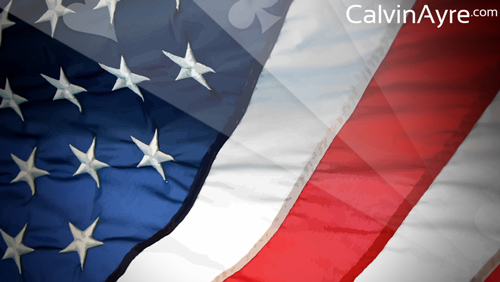 “What is the best way to play internet real money gambling, in your opinion?” So a reader emailed me last week, referencing the current (Nevada) and future (New Jersey and Delaware) iGaming regimes here in the United States.
“What is the best way to play internet real money gambling, in your opinion?” So a reader emailed me last week, referencing the current (Nevada) and future (New Jersey and Delaware) iGaming regimes here in the United States.
It’s a fascinating question. It’s also a difficult question. To be sure, US iGaming has moved share prices of a number of gambling stocks. Shares of Caesars Entertainment (CZR) have quintupled off their lows in November, in large part due to the company’s iGaming potential in New Jersey. Shares of Zynga (ZNGA) saw a number of large moves related to its supposed online gambling venture, only to see shares collapse when the company chose not to enter the US market. Similarly, Boyd Gaming (BYD), bwin.Party Digital Entertainment (BPTY.L), and 888 Holdings (888.L) have made gains based on their potential in the still-nascent American market. But, with the exception of Caesars, the gains have for the most part been short-term, and short-lived.
There’s a reason for that: despite the constant discussion, and the occasional euphoria, no one has yet made any real profits from US iGaming. While Nevada’s real-money interactive poker market has gone live, Station Casinos’ first mover Ultimate Poker posted a $3.2 million loss in the second quarter, according to EGR Magazine. That’s one key reason why I have remained skeptical on stocks such as CZR and ZNGA. While bulls remain optimistic towards US iGaming – and investment firms such as Morgan Stanley project billions of dollars in annual online gambling by the end of the decade – the fact remains that US iGaming is still valued solely on its potential. And having worked on Wall Street during the dot-com boom and bust of 1999-2001, I’m well aware that “potential” can very easily be overvalued.
There’s another issue as well: there simply is no “pure play” on US gaming. That is, there is no publicly traded company whose future profits are tied solely the US market. Still, the US market has moved stocks, and likely will continue to move stocks, so the question remains: how can individual investors play US iGaming, particularly if they are more optimistic about the market than most? There are several answers:
888 Holdings (888.L) and bwin.Party Digital Entertainment (BPTY.L)
I made the case for both stocks last week, whose bull cases are based on US potential, but in very different ways. For 888, the US provides the company an opportunity to expand its thriving European business; the stock has been the second-best performing gambling stock over the past two years. Indeed, 888 is the only publicly traded operator seeing any real growth in online poker.
bwin.Party, by contrast, has massively underperformed; at Friday’s close of 114.4p shares, its market capitalization has dropped by two-thirds from levels seen after the announcement of the merger between PartyGaming and bwin. Yet its own US initiatives – which include a 65 percent stake in a joint venture with Boyd and MGM Resorts and Entertainment (MGM) – offer some hope for the struggling company.
In both cases, the argument is roughly the same, albeit for very different reasons. 888’s thriving European business still seems underpriced, despite massive share price gains over the last 30 months; bwin.Party, in contrast, is seemingly priced for destruction, with the stock near all-time lows. For both stocks, success in the US would create strong gains, while failure could likely be overcome – or at least mitigated – by profits from the legacy European businesses. 888 has an early edge, as the company was (9) selected by the state of Delaware, along with Scientific Games (SGMS) to “provide the technical backbone” for its lottery-based offering of online gambling products.
That recurring revenue might give 888 a leg up over bwin.Party. But for both companies, the US is acting much like a free “call option”; if either company sees success in the US (most notably, New Jersey), their shares will take off. If not, the long run of success at 888 and the depressed share price at BPTY mean that shareholders will still have European profits to limit their losses. Both companies offer a relatively lower-risk way to play US iGaming.
Caesars Entertainment (CZR)
Let’s be clear: I’m not recommending shares of Caesars. I’ve long argued for a short sale of the company’s stock, and though that trade has largely turned out to be ill-timed (again, Caesars has gone from below $5 to over $22 in the last ten months), I still do not believe the stock is suitable for long-term investors. As the famed economist John Maynard Keynes once wrote, “The market can stay irrational longer than you can stay solvent,” as traders have kept CZR buoyed largely on its potential for online gambling profits in New Jersey, where the company’s four land-based properties would seem to give it a competitive edge.
Caesars recently announced plans to spin off its interactive assets – along with a portfolio of Caesars corporate bonds, and ownership of Planet Hollywood and the Horseshoe Baltimore – into a new company, though I remain skeptical that the spin-off will truly protect those assets from the company’s crushing $23 billion debt load. But for those investors who believe that US iGaming will outpace expectations, the Caesars spinoff – to be traded under stock symbol CGP – remains a strong speculative play. Caesars – along with Boyd’s Borgata – has the strongest and most well-known brand in New Jersey, which remains the key market in the US for iGaming. New Jersey’s population is more than double that of Delaware and Nevada combined, and the adoption of a full suite of gambling products – including banked games such as blackjack and baccarat – should allow for legitimate profits. (In Nevada, by contrast, over 20 providers are competing for an online poker market in a state with casinos seemingly on every corner; it seems likely that most, if not all, of those providers, will wind up losing money in an effort to prove their worthiness to other states and other customers.)
Again, I’m skeptical about Caesars’ long-term prospects, but, very clearly, I’ve been wrong in the medium term. Caesars’ spin-off – if it works – likely provides the purest play on US iGaming. And the euphoria surrounding that spin-off’s potential may keep the stock elevated for some time, even if the potential profits in New Jersey, and elsewhere, wind up coming in below expectations down the line.
Boyd Gaming (BYD)
Boyd only has a 15 percent stake in its joint venture with 888 and MGM; but it would appear from 888’s decision to offer self-branded products that Boyd, too, could go its own way (with the help from a European supplier) and leverage the Borgata brand. Borgata offers far and away the largest and most successful poker room in the state; it’s likely that many potential online poker players in New Jersey would be intrigued by the Borgata brand, while the company could easily cross-market its loyalty program between land-based and online players, and leverage its poker player base into roulette, slots, and blackjack.
But it’s also unclear whether much of that success is already priced in; in less than four months after Chris Christie’s conditional veto of online gambling in the state, Boyd shares better than doubled. They have since pulled back, closing Friday at $11.76. But this is a company with $4.4 billion in net debt, versus a market capitalization of just $1.05 billion. Its land-based casinos serve customers in Las Vegas (with a focus on the locals market), the Midwest, Southeast, and Atlantic City; all markets where growth has been stagnant or negative.
The biggest concern for Boyd, in particular, is the possibility that New Jersey iGaming will cannibalize revenues from land-based Atlantic City casinos. Will New Jersey gambling customers take their normal gambling budgets and simply play from home, rather than taking a bus or a train to Atlantic City? Or will iGaming create new customers and/or expand the budgets from existing customers? That is a key question for Boyd; the Borgata created over one-sixth of pre-tax income in its most recent quarter. Even a small decline at the Borgata would put significant pressure on profits at that location – given the high fixed costs of land-based casinos – and largely override any potential growth from the company’s other properties. It remains unclear whether iGaming profits could counteract that headwind; as such, Boyd remains a highly speculative play on the New Jersey market. If it succeeds there, the share price could easily double. If it fails, and if success from other competitors exacerbates the long decline in Atlantic City’s land-based revenue, Boyd’s equity in the Borgata could easily be wiped out, and shares would decline sharply.
The Rest
The issue for other companies remains simple: the potential revenues and profits from a small stake in US iGaming simply aren’t enough to move the stock. For instance, International Game Technology (IGT) is supporting Delaware’s free-play casino ahead of the rollout of real-money gambling. But for a company with a $5 billion market capitalization, that opportunity is simply not enough to make a material difference to its share price. Smaller suppliers such as Amaya Gaming (AYA.V) and Probability PLC (PBTY.L) could see massive gains if they strike the right note in the US; but the odds of such success are slim. They represent hugely high-risk, but likely high-reward plays, if the market develops and if either or both companies can link up with successful providers. Both remain very large ‘ifs’.
Again, the biggest issue for investors optimistic about US iGaming is that all the potential players in the market have their own baggage. For Caesars and Boyd, it’s the billions of dollars in debt; for bwin.Party, it’s the long-running demise of PartyPoker and the retreat from unregulated markets; for 888, it’s the fear that the recent run of success in Europe will eventually run out of steam. For other players, such as IGT, Bally Technologies (BYI), Wynn Resorts (WYNN) and others, the size of the companies overwhelms the revenue opportunities in New Jersey and Nevada.
There simply is not a publicly traded pure play on US iGaming right now. That remains the problem for individual investors. For those looking to play the sector, smaller, traditionally online-focused operators and suppliers are likely the way to go. But investors must realize it will be a long, risky, and difficult road.






